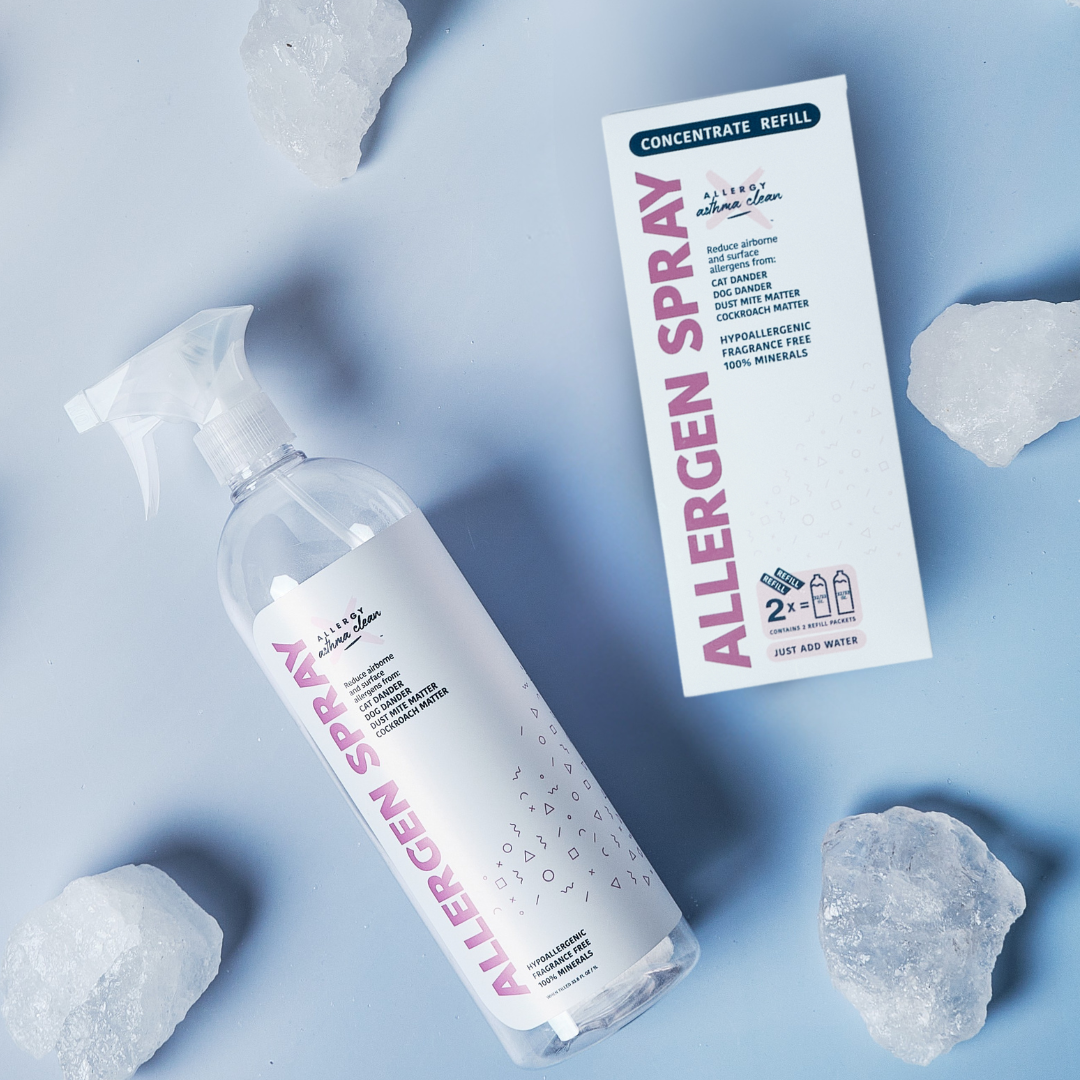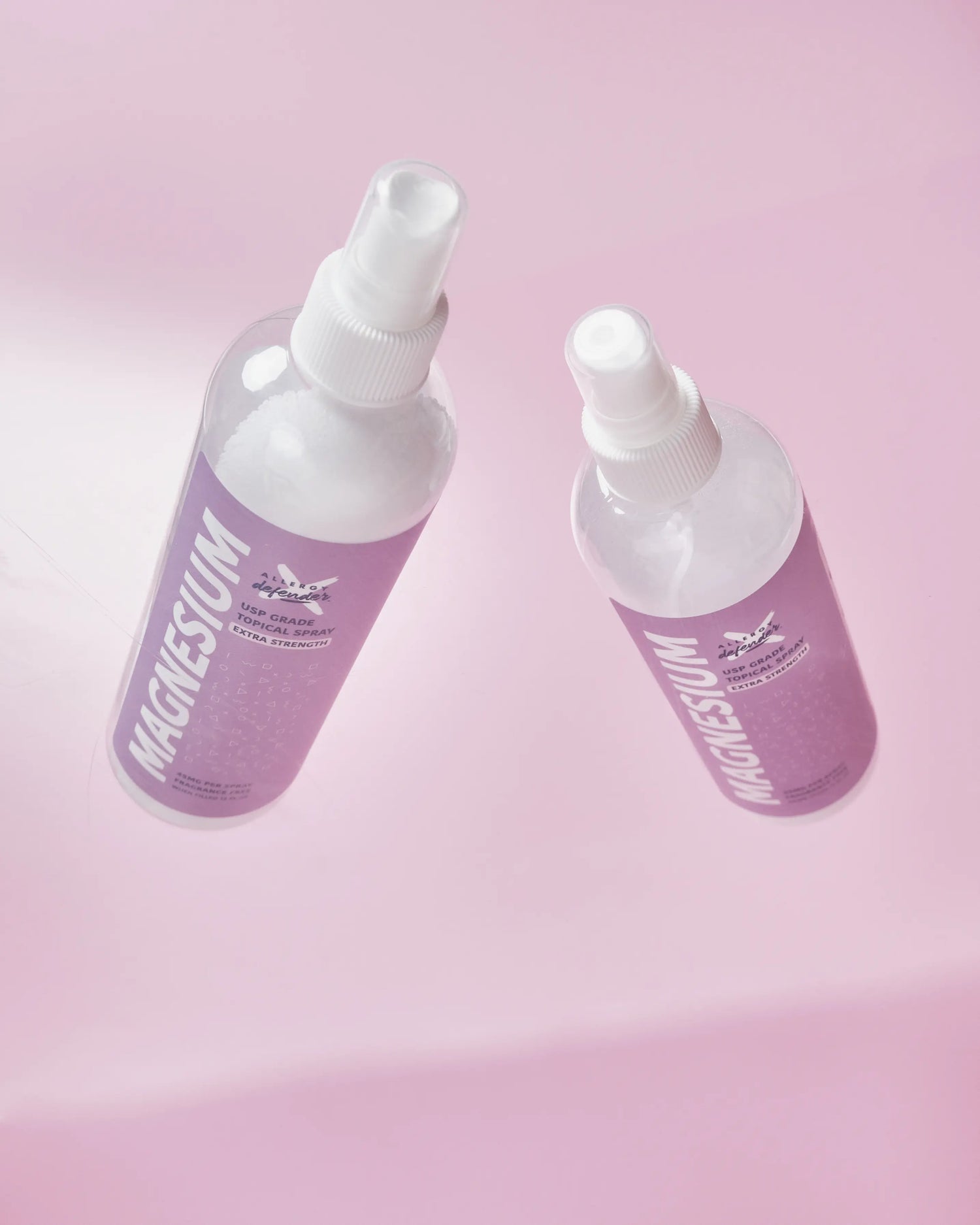The Gut-Allergy Connection
The Gut-Allergy Connection: How Your Microbiome Might Hold the Key to Wellness
Millions worldwide suffer from allergies, from seasonal sniffles to life-threatening anaphylaxis. While triggers like pollen and dust mites are well-known, a surprising culprit might be lurking inside your gut.
The Gut Microbiome: A Thriving Universe Within
Our gut is home to trillions of microorganisms, collectively known as the gut microbiome. This diverse community of bacteria, fungi, and other microbes plays a crucial role in digestion, nutrient absorption, and, surprisingly, immune function. A healthy gut microbiome is like a thriving ecosystem, with a balanced and diverse population of these tiny residents working together to keep us healthy.
To feel well and be well you need a healthy belly
In the book Happy Gut by Vincent Pedre, MD it says your gut is your internal garden and requires tending just like a garden would. We’ll look prettier and produce more health for ourselves if we tend or care for our gut. He goes on to say the gut is in continuous contact with nutrients as well as all types of toxins, food additives, microbes, and drugs that may pass through our digestive tract daily. It’s your gatekeeper. And, within the healthy gut lives a world of friendly bacteria that help to digest, produce gut lining, and keep unfriendly organisms in check.1
How important is a healthy gut?
Dr. Pedri goes on to explain “It all starts in your gut. I mean almost everything- headaches, migraines, allergies, autoimmunity, weight gain, acne, skin rashes, yeast infections, hormonal imbalances, fatigue, immune challenges, and even the way you experience pain, they all relate to the condition and health of your gut.2
Did you know the standard American diet (SAD) is full of processed foods, food additives, and sugar? This diet promotes harmful yeast and bacteria in our gut and this harms our health. Could this be why so many people are unhealthy?
You follow a good diet, but your belly is still off?
Here are more culprits: stress is one, and drugs especially antibiotics are another reason for an upset tummy.
But let’s say you ignore diarrhea or constipation, bloating, and more, what will happen then? Will your gut get better on its own? Not really because you’re not feeding your gut what it likes- the good bacteria.
What are the benefits of a normal gut?
To put it in a nutshell, keeping your gut balanced, and healthy will give you more energy, help you lose weight, and reduce pain. In addition to those big pluses, how about eliminating seasonal allergies, and just improving your health as a whole? Sounds pretty good, doesn’t it?
In a nutshell Dr Pedre’s protocol
He calls it the Gut C.A.R.E. program and it will take 28 days. The four areas are:
Cleanse: where you remove gut irritants, infections, food sensitivities, and toxins in your food
Activate: reactivate healthy digestion by replacing essential, nutrients and enzymes
Restore: re-introduce beneficial bacteria for healthy gut flora
Enhance: repair, regenerate, and heal the intestinal lining 3
There are some foods you’ll have to give up for a short while. If you’re a gluten, dairy, and sugar lover (who isn’t?), or into soy and corn it will be a bit of a challenge, but giving it a go for about 30 days to change your health is really small potatoes!
What about leaky gut?
There’s a link between systemic illness and the health of your gut. Here’s how people can develop a leaky gut: poor dietary choices, infections, low stomach acid, toxins, exposure, preservatives and pesticides in foods that may damage the lining as well as environmental toxins, NSAIDS, like aspirin, Advil, and ibuprofen.
Should you just change your diet?
You could, but Predre suggests lab tests to determine the real problem. Once you understand the problem you can go after the most helpful solution instead of an overall approach.
Don’t forget about supplements
If we’re nutritionally struggling and our gut is off, there are supplements to take such as digestive aids, probiotics, and prebiotics according to the book.
Probiotics are yogurt (not sugar ladened), kefir, kimchi, and sauerkraut or other fermented foods, and you can buy a probiotic supplement.
Prebiotics found in plant fiber are in the following foods: carrots, onions, radishes, jicama, and asparagus to name a few or you could purchase a supplement.
Any other benefits?
It’s a potential plus that you’ll learn to eat better to stay healthy.
The Gut-Immune System Axis: A Dynamic Duo
Did you know that around 70% of the body's immune system resides in the gut? This close proximity fosters a dynamic relationship known as the gut-immune axis. The gut microbes influence the development and function of immune cells, while the immune system, in turn, regulates the microbiome's composition. It's a two-way street!
The Microbiome's Role in Allergies: When the Ecosystem Gets Unbalanced
Research suggests that an imbalance in the gut microbiome, often called dysbiosis, might contribute to allergies. When harmful bacteria outnumber beneficial ones, it can lead to increased inflammation and a heightened immune response. This overactive immune system can misinterpret harmless substances as threats, triggering allergy symptoms like:
- Runny nose
- Itchy eyes
- Skin rashes
- Wheezing
- Digestive issues
Factors Affecting the Gut Microbiome: The Culprits
Several factors can disrupt the delicate balance of the gut microbiome, increasing the risk of allergies:
- Antibiotics: These medications kill both harmful and beneficial bacteria, throwing the microbiome off balance.
- Diet: A diet low in fiber and high in processed foods and sugary drinks can favor the growth of harmful bacteria.
- Cesarean sections: Babies born via C-section have a different gut microbiome than those born vaginally, potentially impacting their allergy risk.
- Environmental exposures: Early exposure to allergens and limited exposure to diverse microbes might increase allergy susceptibility.
Talk to Your Alternative Doctor: A Personalized Approach
If you are concerned about allergies or gut health, consult your doctor or naturopath. They can recommend personalized strategies to manage your allergies and support your gut microbiome. Remember, everyone's gut is unique, and what works for one person might not work for another.
The Future of Gut-Based Allergy Treatments: A Glimpse into Tomorrow
Personalized medicine offers exciting possibilities for allergy treatment based on individual gut profiles. By identifying specific microbial imbalances linked to allergies, researchers are developing targeted probiotics and prebiotics to restore gut health and potentially prevent or alleviate allergy symptoms.
Conclusion: Your Gut Health, Your Key to Wellness
While much remains to be discovered about the gut-allergy connection, the evidence suggests that nurturing a healthy microbiome may be a powerful tool in our fight against allergies. By making informed dietary choices, managing stress, and exploring gut-based therapies, we can empower ourselves to take control of our health and well-being. Remember, a healthy gut is a happy gut, and a happy gut can lead to a happier, healthier you!
Additional Resources:
- American College of Allergy, Asthma & Immunology: https://www.aaaai.org/
- The International Probiotics Association: https://internationalprobiotics.org/home/
- National Center for Complementary and Integrative Health: https://www.nccih.nih.gov/
- 1 & 2. Happy Gut Vincent Pedre, MD First edition 2015 Harper Collins New York. NY pg 12-15
- 3. Happy Gut Vincent Pedre, MD First edition 2015 Harper Collins New York. NY pg 24
- 4. Happy Gut Vincent Pedre, MD First edition 2015 Harper Collins New York. NY pg 77



